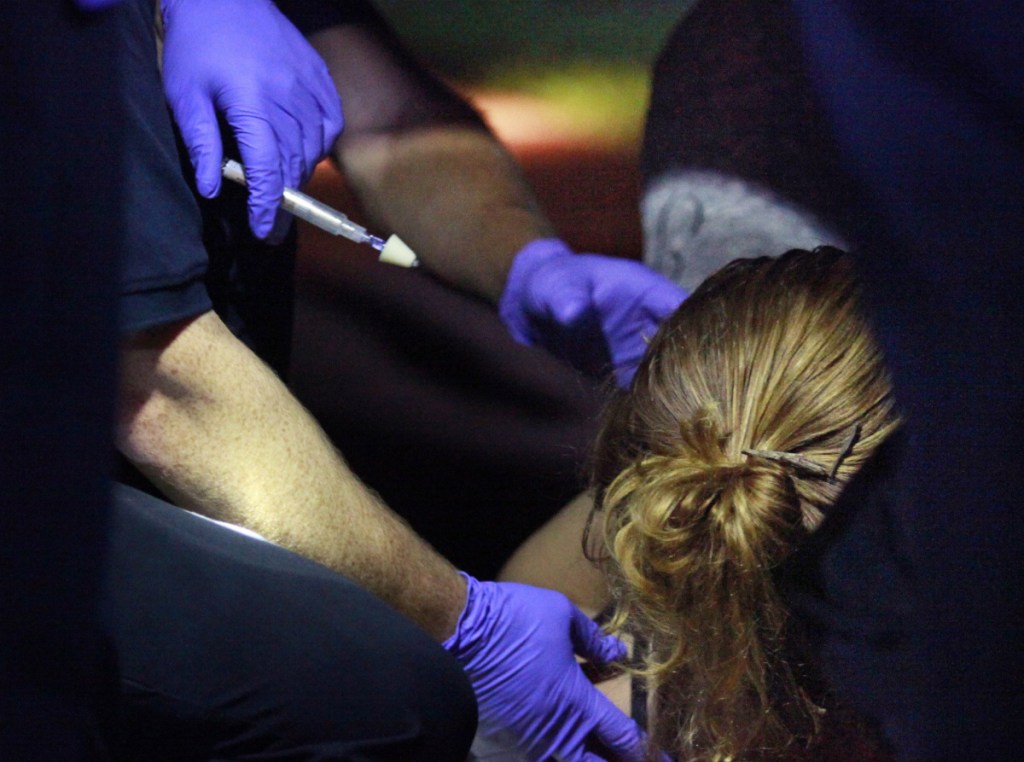AUGUSTA — After seven opiate overdoses in five days, the Augusta Police Department is warning people that a “highly lethal” supply of heroin has surfaced in Augusta.
“Investigators from the Augusta Police Department have been told that a supply of ‘killer’ heroin has landed in the Augusta area,” Deputy Chief Kevin Lully wrote in the Wednesday afternoon release.
Lully said the increase in overdoses took place from Aug. 31 to Sept. 4. It is not clear if any were fatal.
“Again, this heroin is highly lethal and the Augusta Police Department cautions anyone who may come into contact with it,” the release said.
The Kennebec County Sheriff’s Lt. Chris Read said in a Thursday statement that his agency are aware of the potentially lethal heroin.
“The Kennebec County Sheriff’s Office would like to reiterate the message from the Augusta Police Department that there is a dangerous heroin product being distributed in Central Maine at this time that is potentially lethal,” the release said.
Read said on Sept. 3 that sheriff’s department personnel responded to Litchfield for a heroin overdose that required two doses of Narcan to revive the victim.
In February, the Press Herald reported a record 418 people died from drug overdoses in Maine in 2017, 48 more than the year before. Fentanyl, a powerful synthetic opiate, surpassed heroin that year as the deadliest substance, being involved in 247 deaths.
A 10-part report from the Portland Press Herald in 2017 — titled “Lost” — explored multiple facets of the opiate crisis in Maine. The series found that the problem here has been made worse by a lack of resources and a lack of consensus on how best to combat the problem.
Malory Shaughnessy, executive director of the Maine Alliance for Addiction and Mental Health Service, said different potencies and types of drugs are common, but she was not aware of the specific potency of the new lethal supply.
“We keep seeing different strains with fentanyl,” she said. “People are used to heroin and the fentanyl comes in and it’s stronger, so you see more overdoses.”
Shaughnessy said the drug treatment agencies the Alliance works with stay up to date with new types of drugs, but the tweaks in the type of drug does not usually change how the person is treated when they overdose.
The Waterville Police Department started their Operation HOPE program in January 2017 to help those affected by addiction. Operation HOPE — an acronym for Heroin Opiate Prevention Effort — allows those who are addicted to drugs to turn in drugs and paraphernalia without charge and assists them in finding treatment.
“I don’t see as many overdoses as I did a year ago,” Officer Robert Bouley, who works in the program, said. “But, still, the danger is there.”
The number of drug overdoses in Waterville, he said, has “stayed similar or gone down” in recent years.
According to Bouley, many of the people who use the program are spurred by overdoses to their friends and families to get help.
“It makes them want to get help before something happens with their usage,” he said.
Bouley said this “highly lethal” supply is likely just a more potent concentration of the drug, which has long been a factor in overdoses.
“The potency of the heroin itself is more than what the person expects,” he said. “It could be 10 times or 100 times more potent and, over the past four or five years, it’s gotten worse.”
Bouley said Waterville’s drug enforcement unit works closely with the Maine Drug Enforcement Agency, Augusta police and other agencies in the country to help combat the ongoing opiate crisis.
Neither Lully nor Augusta Police Chief Jared Mills were available for comment at press time.
Anyone with information on this highly lethal form of heroin is asked to contact the Kennebec County Sheriff’s Office or their local law enforcement agency.
This story will be updated.
Sam Shepherd — 621-5666
Twitter: @SamShepME
Send questions/comments to the editors.




Comments are no longer available on this story